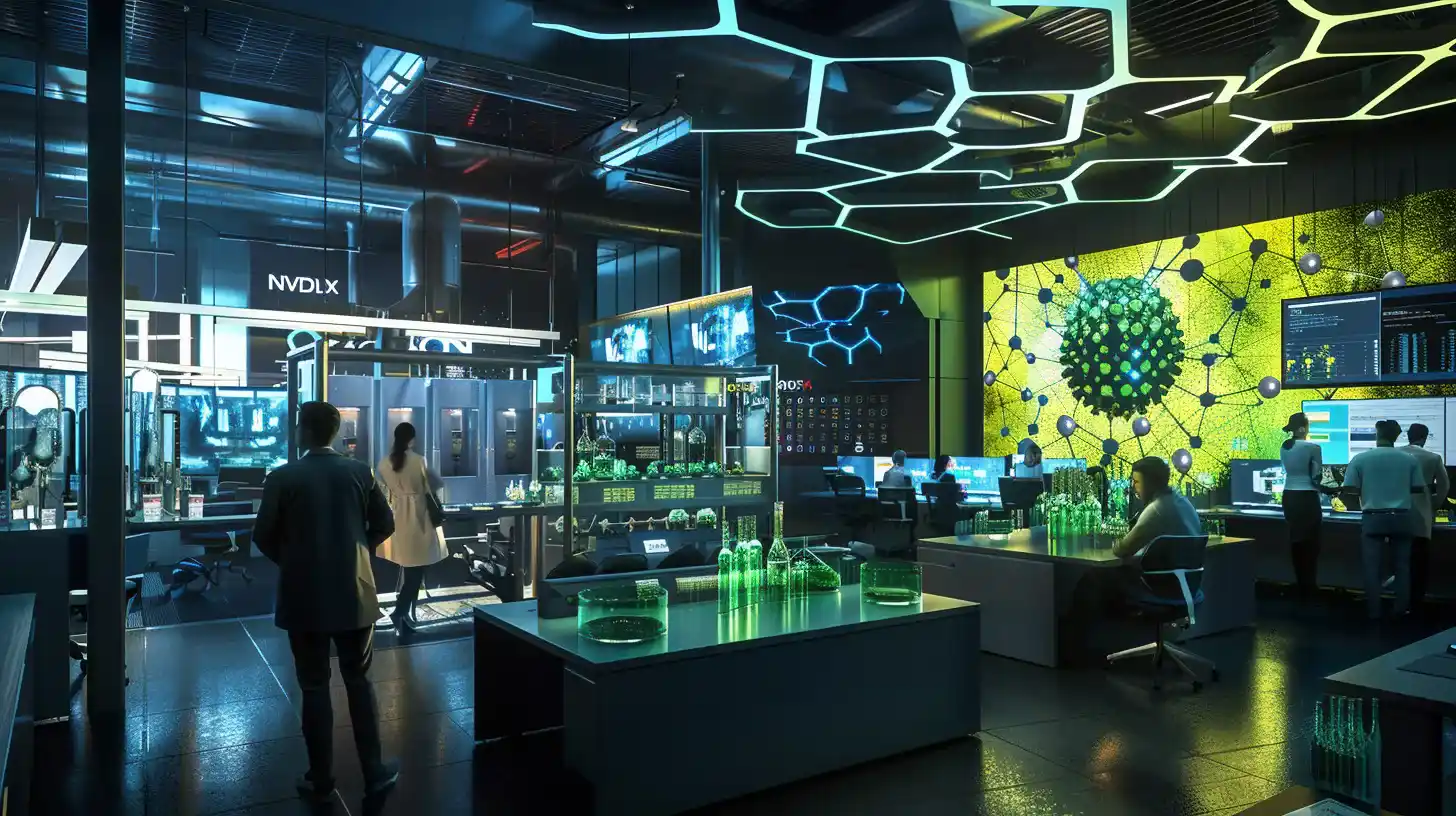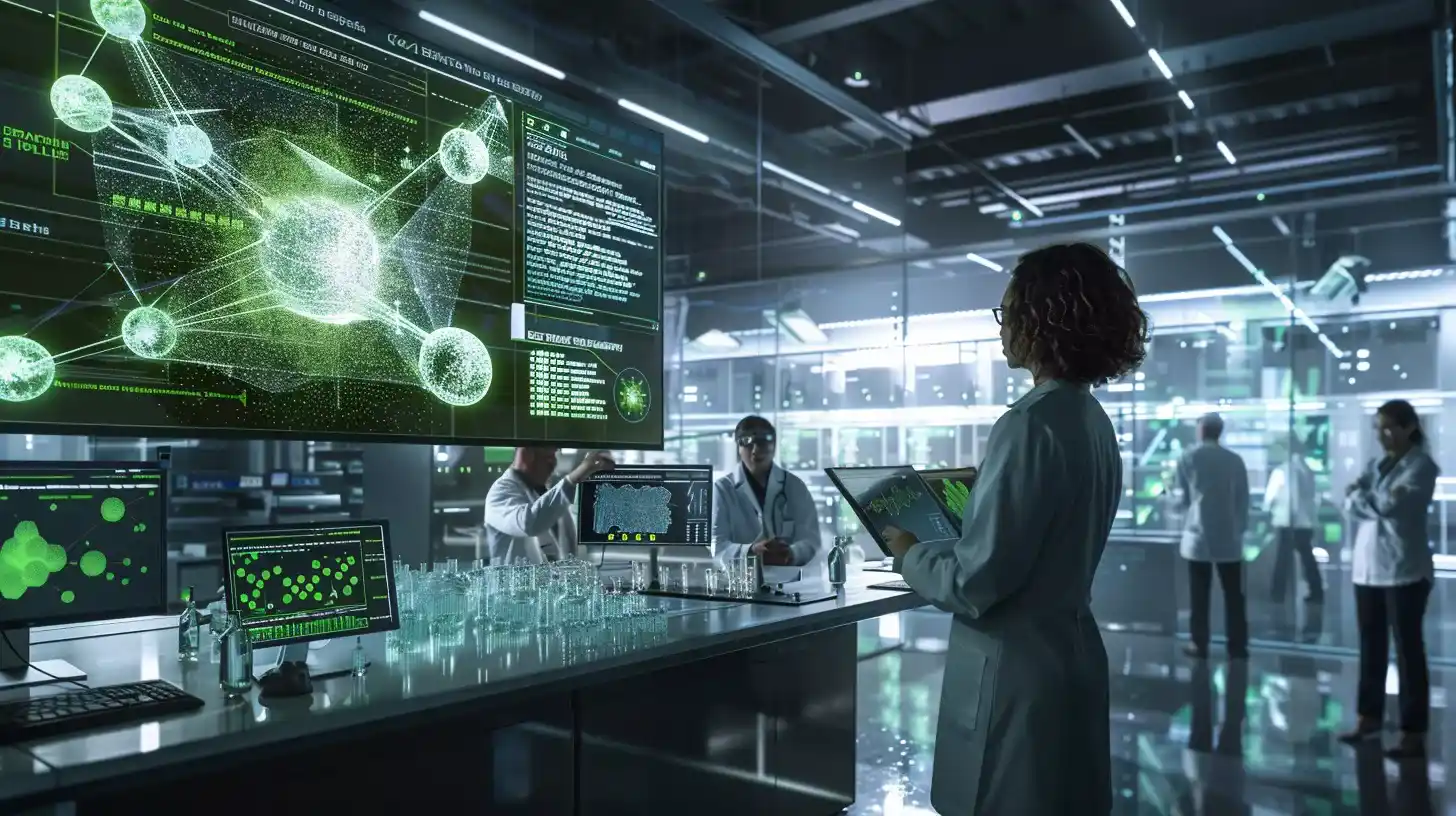Table of Contents
Nvidia Healthcare Innovations: Last week, Nvidia unveiled groundbreaking partnerships with Johnson & Johnson and GE Healthcare, marking a significant leap forward in the integration of generative AI into surgical procedures and medical imaging.
These transformative developments, showcased at the 2024 GTC AI conference, underscore Nvidia’s burgeoning role in the Nvidia Healthcare Innovations landscape, with a slew of new AI-powered tools geared towards revolutionizing medical practices on the horizon.
In the words of Raj Joshi, a seasoned technology analyst at Moody’s Ratings, Nvidia’s ascendancy can be attributed to its provision of essential technological infrastructure, facilitating tasks previously deemed arduous or financially prohibitive. The burgeoning interest in Nvidia Healthcare Innovations among investors, epitomized by Nvidia’s soaring shares, underscores the untapped potential inherent in the marriage of AI and biotechnology.
Nvidia Healthcare Innovations Pioneering Partnerships
Amidst the fervent optimism surrounding AI’s impact on healthcare, Arda Ural, EY Americas’ health and life sciences industry market leader, emphasizes the shift from hope to tangible outcomes. Indeed, AI has emerged as a catalyst for expediting drug discovery processes, breathing new life into failed drug candidates, and unraveling complex medical conundrums.

The allure of generative AI is particularly pronounced in the biotech realm, where the traditional drug development timeline spans over a decade, fraught with exorbitant costs and formidable failure rates. According to Ural, a staggering 41 percent of biotech CEOs are actively exploring concrete applications of generative AI—a testament to the technology’s swift assimilation into the industry’s fabric.
Nvidia Healthcare Innovations is not merely a recent endeavor but a culmination of longstanding aspirations. With a robust ecosystem encompassing companies like Recursion Pharmaceuticals and Generate: Biomedicines, Nvidia’s AI infrastructure serves as a linchpin for accelerating biomedical research endeavors. The symbiotic relationship between these entities highlights the indispensable role of Nvidia’s technology in propelling medical innovation forward.
The Evolution of Drug Discovery with AI
Colette Kress, Nvidia’s chief financial officer, underscores the pivotal role of digital biology and generative AI in reshaping various facets of healthcare, from drug discovery to medical imaging. Bolstered by a decade of domain expertise, Nvidia has crafted bespoke solutions such as the Nvidia Healthcare Innovations platform and NVIDIA BioNeMo—an AI service tailored for computer-aided drug discovery.
A testament to its commitment to catalyzing medical breakthroughs, Nvidia allocated a substantial $50 million investment in Recursion, fortifying the latter’s drug discovery endeavors. Collaborative ventures with industry titans like Roche’s Genentech and Schrödinger exemplify Nvidia’s pivotal role in driving collaborative innovation within the healthcare sphere.
Central to Nvidia’s healthcare prowess is the BioNeMo platform—a generative AI cloud service tailored explicitly for drug development. Joshi underscores the transformative potential of Nvidia’s comprehensive technology suite, streamlining operations for biotech firms and expediting the translation of innovative ideas into tangible solutions.

Beyond revolutionizing drug development, biotech-focused generative AI platforms harbor the promise of cost reduction across pharmaceutical value chains. The advent of robotic process automation, empowered by AI, heralds a paradigm shift in operational efficiency—enabling firms to reallocate resources toward research and development endeavors.
Overcoming Challenges and Reservations
The metamorphosis of Nvidia from a gaming-centric entity to a trailblazer in healthcare epitomizes visionary leadership and technological foresight. Joshi reminisces about Nvidia’s humble beginnings and lauds CEO Jensen Huang’s prescient vision—a testament to the transformative potential inherent in seemingly disparate domains.
Yet, amidst the euphoria surrounding AI’s transformative potential, the journey toward widespread adoption in healthcare is fraught with challenges. EY’s AI Anxiety in Business survey underscores prevailing apprehensions among health science and wellness professionals, signaling the need for concerted efforts to assuage concerns and foster a culture of AI acceptance.
In conclusion, Nvidia’s strides in healthcare herald a new era of medical innovation, powered by the fusion of AI and biotechnology. As stakeholders navigate the complex landscape of healthcare transformation, collaborative endeavors and proactive engagement will be imperative in realizing the full potential of AI-driven healthcare solutions.